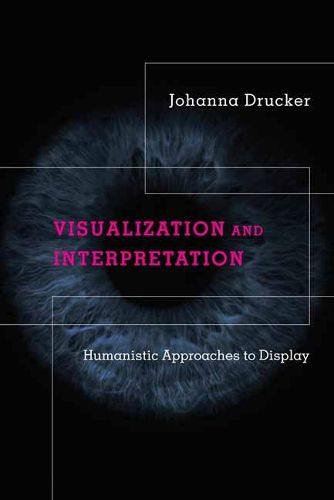Readings Newsletter
Become a Readings Member to make your shopping experience even easier.
Sign in or sign up for free!
You’re not far away from qualifying for FREE standard shipping within Australia
You’ve qualified for FREE standard shipping within Australia
The cart is loading…






An analysis of visual epistemology in the digital humanities, with attention to the need for interpretive digital tools within humanities contexts
In the several decades since humanists have taken up computational tools, they have borrowed many techniques from other fields, including visualization methods to create charts, graphs, diagrams, maps, and other graphic displays of information. But are these visualizations actually adequate for the interpretive approach that distinguishes much of the work in the humanities? Information visualization, as practiced today, lacks the interpretive frameworks required for humanities-oriented methodologies. In this book, Johanna Drucker continues her interrogation of visual epistemology in the digital humanities, reorienting the creation of digital tools within humanities contexts.
Drucker examines various theoretical understandings of visual images and their relation to knowledge and how the specifics of the graphical are to be engaged directly as a primary means of knowledge production for digital humanities. She draws on work from aesthetics, critical theory, and formal study of graphical systems, addressing them within the specific framework of computational and digital activity as they apply to digital humanities. Finally, she presents a series of standard problems in visualization for the humanities (including time/temporality, space/spatial relations, and data analysis), posing the investigation in terms of innovative graphical systems informed by probabilistic critical hermeneutics. She concludes with a final brief sketch of discovery tools as an additional interface into which modeling can be worked.
$9.00 standard shipping within Australia
FREE standard shipping within Australia for orders over $100.00
Express & International shipping calculated at checkout
An analysis of visual epistemology in the digital humanities, with attention to the need for interpretive digital tools within humanities contexts
In the several decades since humanists have taken up computational tools, they have borrowed many techniques from other fields, including visualization methods to create charts, graphs, diagrams, maps, and other graphic displays of information. But are these visualizations actually adequate for the interpretive approach that distinguishes much of the work in the humanities? Information visualization, as practiced today, lacks the interpretive frameworks required for humanities-oriented methodologies. In this book, Johanna Drucker continues her interrogation of visual epistemology in the digital humanities, reorienting the creation of digital tools within humanities contexts.
Drucker examines various theoretical understandings of visual images and their relation to knowledge and how the specifics of the graphical are to be engaged directly as a primary means of knowledge production for digital humanities. She draws on work from aesthetics, critical theory, and formal study of graphical systems, addressing them within the specific framework of computational and digital activity as they apply to digital humanities. Finally, she presents a series of standard problems in visualization for the humanities (including time/temporality, space/spatial relations, and data analysis), posing the investigation in terms of innovative graphical systems informed by probabilistic critical hermeneutics. She concludes with a final brief sketch of discovery tools as an additional interface into which modeling can be worked.